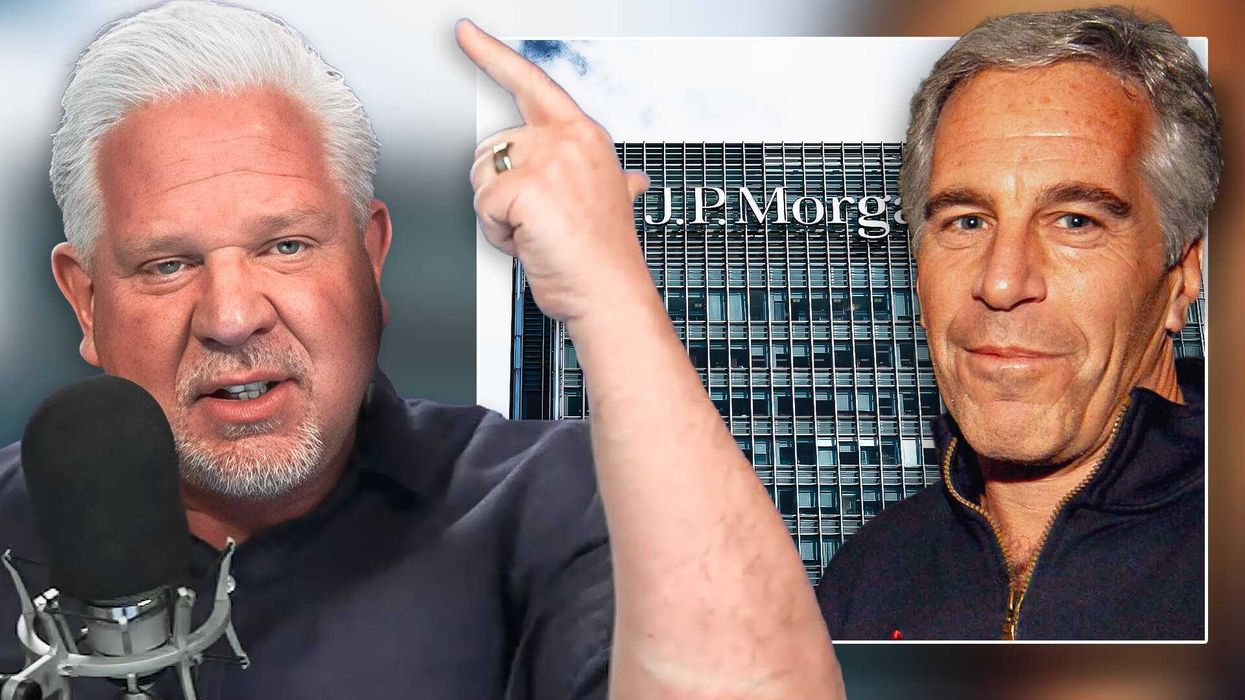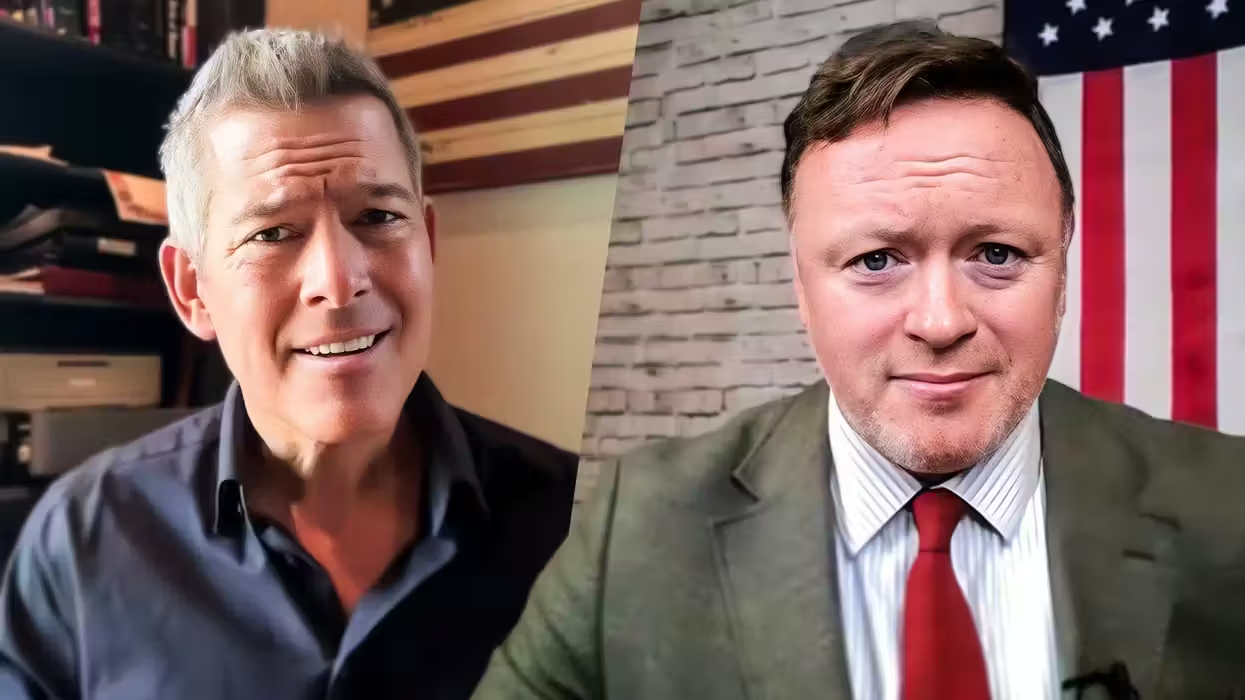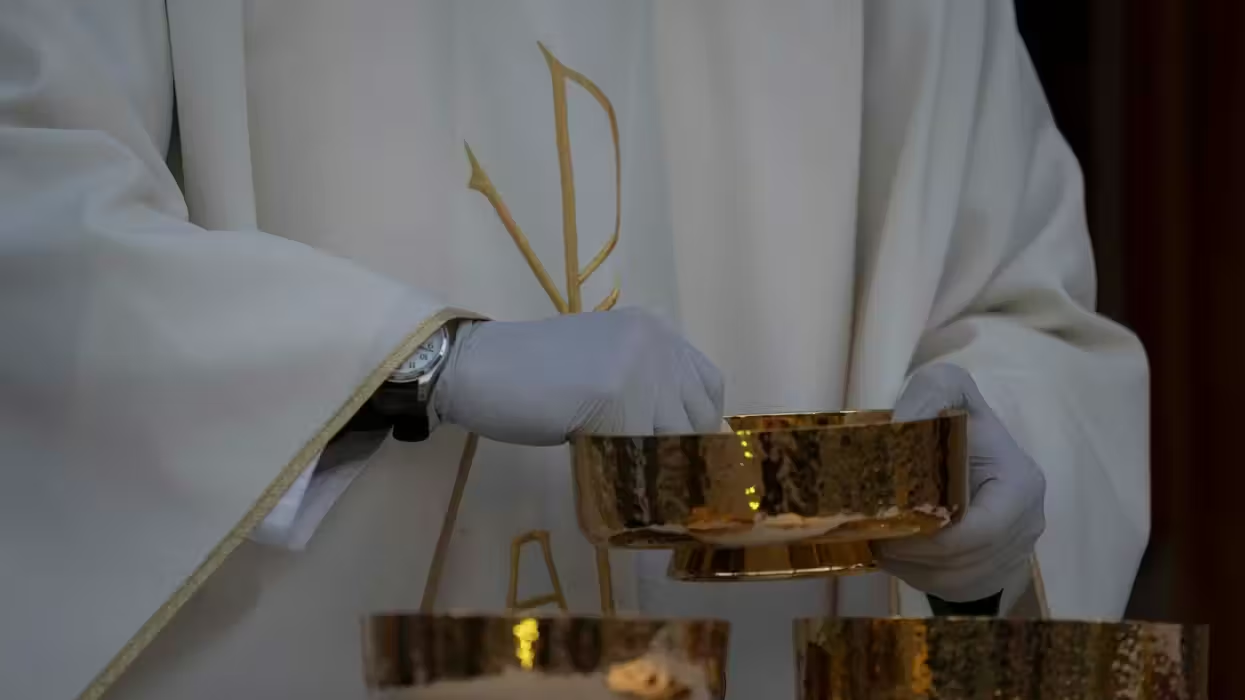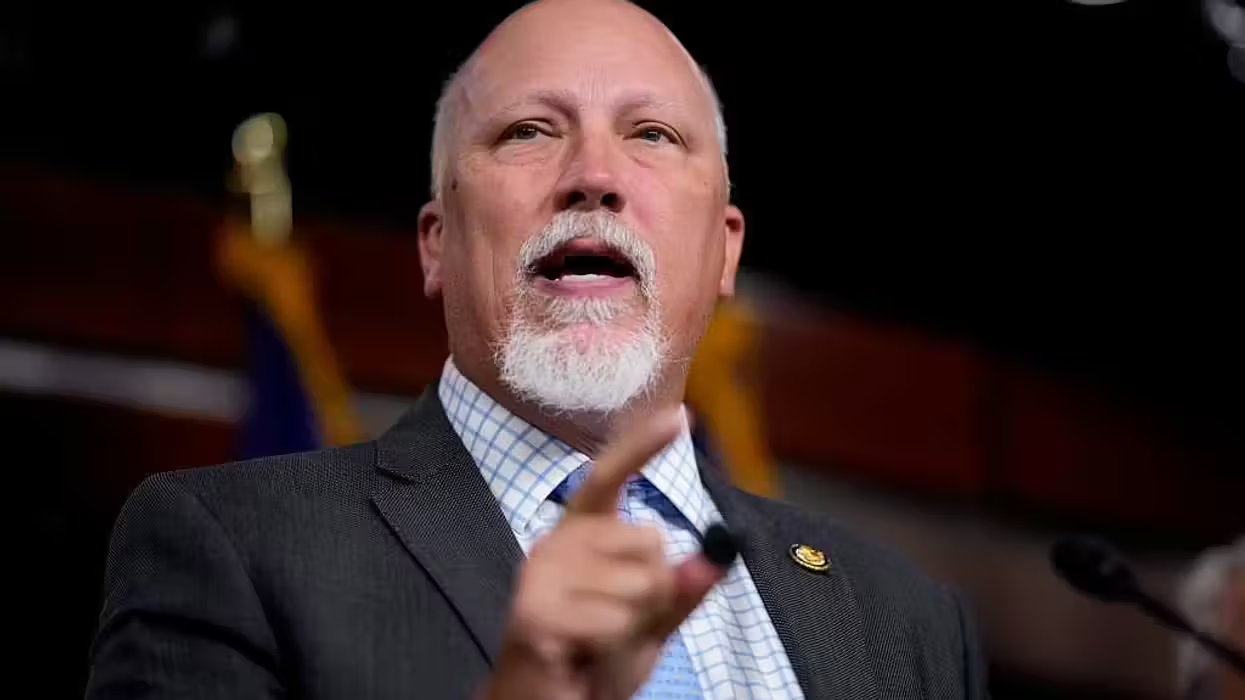© 2025 Blaze Media LLC. All rights reserved.
Details in New Biography of Obama Lead to Stunning Conclusion: 'Deliberate Distortions' and 'Mythmaking
June 20, 2012
"[B]y its conclusion I counted 38 instances in which the biographer convincingly disputes significant elements of Obama’s own story of his life and his family history."

In early May we were introduced to an upcoming biography of Barack Obama by Washington Post writer David Maraniss. Back then, Maraniss advanced the idea that Obama's memoir, "Dreams From My Father," was riddled with fiction and composite characters. Now the book is out, and that narrative is quite clear and leading to some stunning conclusions.
(Related: Old Obama Girlfriends Revealed in New Obama Book — With Excerpts From His Love Letters)
The latest news regarding the Maraniss book, "Barack Obama: The Story," is swirling around how Obama described his grandfather, a central figure in "Dreams." Obama has always portrayed him as an oppressed figure that was taken away by the British and held captive, and other family members have even said he was tortured. That, it seems, is not true.
The Daily Mail explains:
A new biography of Barack Obama has established that his grandfather was not, as is related in the President’s own memoir, detained by the British in Kenya and found that claims that he was tortured were a fabrication.'Barack Obama: The Story' by David Maraniss catalogues dozens of instances in which Obama deviated significantly from the truth in his book 'Dreams from My Father: A Story of Race and Inheritance'. The 641-page book punctures the carefully-crafted narrative of Obama’s life.
One of the enduring myths of Obama’s ancestry is that his paternal grandfather Hussein Onyango Obama, who served as a cook in the British Army, was imprisoned in 1949 by the British for helping the anti-colonial Mau Mau rebels and held for several months.
‘But he had been in the camp for over six months, and when he returned to Alego he was very thin and dirty. He had difficulty walking, and his head was full of lice. He was so ashamed, he refused to enter his house or tell us what happened.’In a 2008 interview, Sarah Obama claimed that he was ‘whipped every morning and evening’ by the British. ‘They would sometimes squeeze his testicles with metal rods. They also pierced his nails and buttocks with a sharp pin, with his hands and legs tied together. He was lucky to survive. Some of his fellow inmates were mutilated with castration pliers and beaten to death with clubs.’
But Maraniss, who researched Obama’s life in Kenya, Indonesia, Hawaii and the mainland United States, found that there were ‘no remaining records of any detention, imprisonment, or trial of Hussein Onyango Obama’. He interviewed five people who knew Obama’s grandfather, who died in 1979, who ‘doubted the story or were certain it did not happen’.
This undermines the received wisdom that Obama’s grandfather was a victim of oppression, an assumption that has in turn fuelled theories that Obama harbours an animus towards Britain based on a deeply-rooted rage about the way Onyango was treated.
John Ndalo Aguk, who worked with Onyango before the alleged imprisonment and was in touch with him weekly afterwards said he 'knew nothing' about any detention and would have noticed if he had gone missing for several months.
Zablon Okatch, who worked with Onyango as a servant to American diplomats after the supposed incarceration, said: ‘Hussein was never jailed. I know that for a fact. It would have been difficult for him to get a job with a white family, let alone a diplomat, if he once served in jail.’
Charles Oluoch, whose father was adopted by Onyango, said that ‘he did not have any trouble with the government in any way'.
Dick Opar, a relative by marriage to Onyango and a senior Kenyan police official, gave what Maraniss judged to be the most authoritative word. ‘People make up stories,’ he said. ‘If you get arrested, you say it was the fight for independence, but they are arrested for another thing.
‘I would have known. I would have known. If he was in Kamiti Prison for only a day, even if for a day, I would have known.’ [Emphasis added]

But the inconsistencies don't end there. Ben Smith, the respected journalist formerly of Politico and now with Buzzfeed, reviewed the book and found more.
"The false notes in Obama’s family lore include his mother’s claimed experience of racism in Kansas ... , " Smith adds [Emphasis added]. He later quotes the book: "Obama presents himself through the book as 'blacker and more disaffected' than he really was, Maraniss writes, and the narrative 'accentuates characters drawn from black acquaintances who played lesser roles his real life but could be used to advance a line of thought, while leaving out or distorting the actions of friends who happened to be white.'" [Emphasis added]
"[B]y its conclusion I counted 38 instances in which the biographer convincingly disputes significant elements of Obama’s own story of his life and his family history," Smith writes.
That leads Smith to use words such as "deliberate distortions," "mythmaking," and "fairy-tale" to describe Obama's account of his own life. Strong words coming from someone that cannot be pigeon-holed as a right-winger. And he even offers a reason: "Obama’s deliberate distortions more clearly serve a single narrative: Race."
So why has it taken so long for Obama's account to be challenged with such voracity? Smith offers a conclusion:
Obama’s conservative critics have, since the beginnings of his time on the national scene, taken the self-portrait at face value, and sought to deepen it to portray him as a leftist and a foreigner.Reporters who have sought to chase some of the memoir’s tantalizing yarns have, however, long suspected that Obama might not be as interesting as his fictional doppelganger. “Mr. Obama’s account of his younger self and drugs…significantly differs from the recollections of others who do not recall his drug use,” the New York Times’s Serge Kovaleski reported dryly in February of 2008, speculating that Obama had “added some writerly touches in his memoir to make the challenges he overcame seem more dramatic.” (In one of the stranger entries in the annals of political spin, Obama’s spokesman defended his boss’s claim to have sampled cocaine, calling the book “candid.”)
In short, conservatives have used it to paint Obama as an extreme leftist while liberals have used it as a means to prove Obama is interesting and a great story.
But is it true that this is the first example of Obama being thoroughly vetted? Maybe by a member of the mainstream media, but Jack Cashill over at the American Thinker takes umbrage with the idea that the Right has yet to question Obama's memoir.
"Although those of us in the blogosphere lack Maraniss's resources and access to friendly witnesses, we have been debunking Obama's Dreams for the last four years," he writes. He cites his own book, "Deconstructing Obama," as an example.
"In unlocking [Obama's] past, I have discovered that the story that Obama has been telling all his life varies from the true story in ways big and small," Cashill writes in that book's introduction.
But there's more: Cashill has long been the champion of the the theory that Obama didn't even write (or wasn't the only one writing) "Dreams." Instead, he posits it was the work of domestic terrorist, and Obama friend, Bill Ayers.
Cashill dives into the theory in his latest article:
As I came to believe early on, whoever guided Obama steered him towards a grievance narrative like Ali's, if not quite as obvious or extravagant. Even on my first reading in July 2008, I could see that Obama's muse proved particularly eloquent on the subject of the angry black male.Phrases like "full of inarticulate resentments," "knotted, howling assertion of self," "unruly maleness," "unadorned insistence on respect" and "withdrawal into a smaller and smaller coil of rage" lace the book. Yet in the several spontaneous interviews Obama had given on the subject of race, I had not seen a glimpse of this eloquence or of this anger.
The evidence eventually led me towards an odd conclusion: The man who lent Obama his voice on the subject of blackness gave all appearances of being white. The more I researched Bill Ayers' background, the less unlikely this seemed. Skin color aside, Ayers and Obama had much in common. Both grew up in comfortable white households, attended idyllic, largely white prep schools, and have struggled to find an identity as righteous black men ever since.
"I also thought I was black," writes Ayers only half-jokingly in his 2001 memoir, Fugitive Days. He read all the authors Obama did -- James Baldwin, Leroi Jones, Richard Wright, Malcolm X. As proof of his righteousness, Ayers named his first son "Malik" after the newly Islamic Malcolm X and the second son "Zayd" after Zayd Shakur, a Black Panther killed in a shootout that claimed the life of a New Jersey State Trooper. Just as Obama resisted "the pure and heady breeze of privilege" to which he was exposed as a child, Ayers too resisted "white skin privilege" or at least tried to.
Tellingly, Ayers, like Obama, began his career as a self-described "community organizer," Ayers in inner-city Cleveland, Obama in inner-city Chicago. In Chicago, Ayers also found a strategic ally in Jeremiah Wright, a man he called a "distinguished theologian and major intellectual," meaning that Wright too spelled "Amerikkka" with three Ks. In short, Ayers was fully capable of crawling inside Obama's head and relating in superior prose what Obama calls, only half-ironically, a "rage at the white world [that] needed no object." [Emphasis added]
"For all of his good work to date, until [Maraniss] can bring himself to address the obvious question of authorship, he will be casting only the dimmest light on history's greatest presidential mystery," Cashill concludes.
Maybe.
But this could also be viewed as one piece of evidence in a larger case. There are several authors who are taking the stand, and with each piece of testimony the defense weakens. There's Cashill's book, Maraniss's, and next month Glenn Beck's publishing arm will deliver a blow to Obama's longstanding narrative when it uncovers the alarming history of a central figure in "Dreams" -- Obama's mentor "Frank," who is actually the avowed Communist Frank Marshall Davis (The book, by Paul Kengor, is called "The Communist").
The verdict, it seems, is becoming much clearer.
Want to leave a tip?
We answer to you. Help keep our content free of advertisers and big tech censorship by leaving a tip today.
Want to join the conversation?
Already a subscriber?
Jonathon M. Seidl is a former managing editor of Blaze News and a best-selling author and speaker. His next book, “Confessions of a Christian Alcoholic,” will be released on October 7, 2025.
Jonathon M. Seidl
Jonathon M. Seidl is a former managing editor of Blaze News and a best-selling author and speaker. His next book, “Confessions of a Christian Alcoholic,” will be released on October 7, 2025.
more stories
Sign up for the Blaze newsletter
By signing up, you agree to our Privacy Policy and Terms of Use, and agree to receive content that may sometimes include advertisements. You may opt out at any time.
Related Content
© 2025 Blaze Media LLC. All rights reserved.
Get the stories that matter most delivered directly to your inbox.
By signing up, you agree to our Privacy Policy and Terms of Use, and agree to receive content that may sometimes include advertisements. You may opt out at any time.





